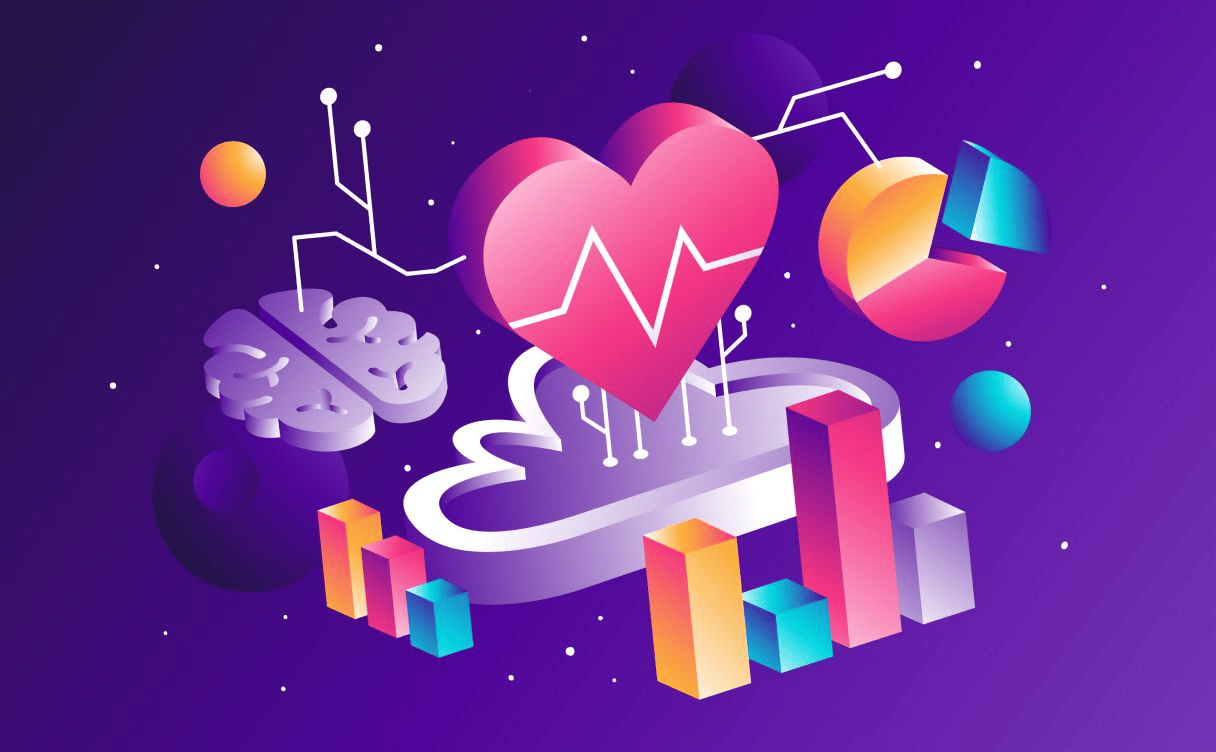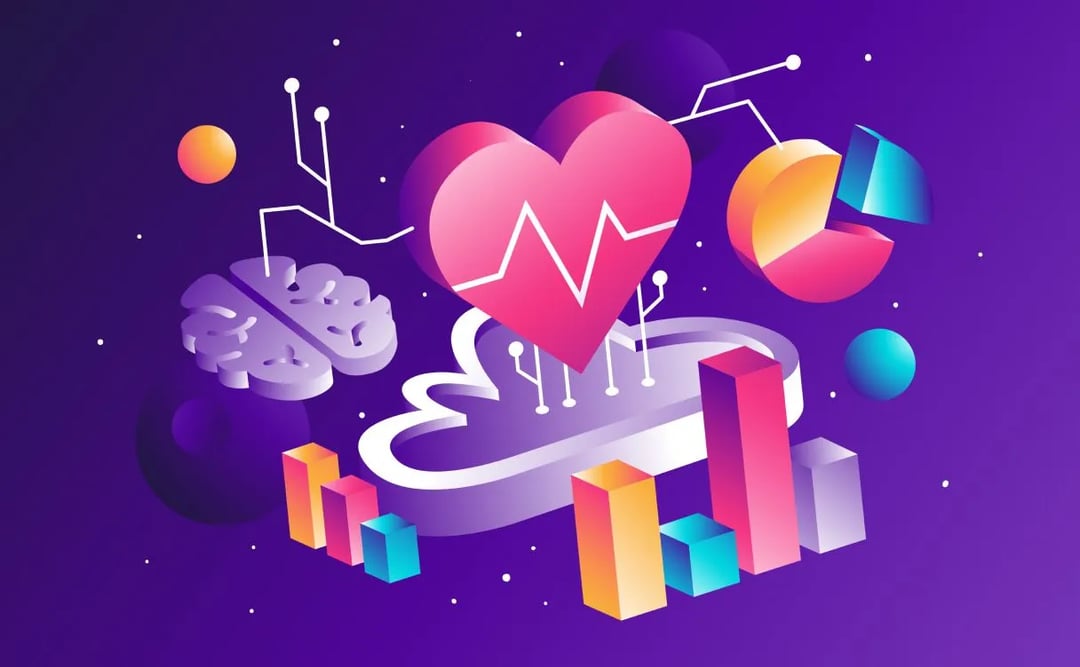
How AI + cloud are unlocking a new frontier in medical research and healthcare
Cloud service providers are playing a central role in bringing to life current and future digital healthcare solutions, in terms of both research and deployment...

Accelerated by COVID-19 — whose vaccine was discovered by deeptech companies BioNTech and Moderna — the health tech market is currently booming. Healthcare as a sector was projected to reach a value of $10 trillion by 2022, with growth driven by trends like AI — which has already generated $8bn for the healthcare industry, and is estimated to reach more than double that by 2030 — and regenerative medicine, which is set to reach $57bn by 2027, a growth rate of 11%, according to BCG & Hello Tomorrow.
Deeptech, or innovations born in universities and research labs which then evolve into startups, is the intellectual driving force behind this growth. Thanks to such breakthroughs, it’s now possible to consult an AI-powered doctor on your smartphone, to improve mental health with electric brain stimulation, and to optimize drug efficiency thanks to quantum computing. Let’s find out more about the deeptech health revolution!
Data is, of course, a major factor in digital health. “70% of all costs on healthcare are predictable, and therefore preventable. Instead of waiting for people to get sick, we can collect data in real time, analyze it, and intervene early,” said Ali Parsa, Founder & CEO of medical app provider Babylon Health on a panel at Web Summit 2022. Claiming to be “more than a doctor in your pocket”, Babylon’s mobile app answers simple questions like “why do I have a pain in my chest?”, providing AI-powered answers to point patients in the right direction. Used by partners as big as the UK’s National Health Service (NHS), as well as companies like BNP Paribas or Shell, it essentially performs a role of triage, or filtering patients before they are seen by a real healthcare professional. So a bit less than a doctor in your pocket, in fact.
Whilst the app will inevitably learn more and more the data it ingests — thereby training its AI model towards a world where “doctors are warned with data all the time, in real time”, as Parsa puts it — the success of Babylon Health also underlines a key limit of healthtech: way more than other sectors, it has to comply with countless regulations, in the interests of patients’ safety.
This also means that depth and breadth of research carried out by such deeptech companies can be key to proving their academic credentials, and therefore trustworthiness.
This is why Babylon Health proudly claims to have 20 peer-reviewed research papers… a figure dwarfed by the 300 papers that Algorithmiq claims to have inspired. This Finnish deeptech company applies quantum computing to drug development and discovery. “We know 90% of drugs fail to properly cure 50% of the population, because we are not able to predict with sufficient accuracy how drugs bind to proteins and small molecules (and therefore why the same drugs work differently on apparently similar patients),” Sabrina Maniscalco, Algorithmiq’s Co-founder & CEO said on the aforementioned panel. “This is exactly what quantum computers can do, so they are going to revolutionize our society, and in particular, healthcare and life sciences.”
This “revolution” will naturally improve people’s lives, but also pharmaceutical companies’ bottom lines. As Algorithmiq itself reminds us, the cost of drug research has grown tenfold since the 1980s… yet the number of new drugs discovered per year remains relatively stable. So medicinal research is not only getting more and more expensive, it’s also showing less and less return on investment. Could quantum computing be the silver bullet here?
Quantum computing won’t be used at scale for another 10-15 years, admits Maniscalo, who still insists Algorithmiq is already learning from this advanced tech. “Quantum computers are weird for most people, who don’t know how they work”, she said. “And yet molecules are quantum systems. It’s not just doing something faster, but something that cannot be done otherwise. Testing how drugs work in our bodies wouldn’t be possible with normal computers.”
Boasting almost as many research papers - think deeptech brownie points - as Algorithmiq, Neuroelectrics has developed a headset that stimulates the brain to improve mental health. “There are almost 100 billion neurons in your brain”, said Ana Maiques, the company’s Co-founder & CEO at Web Summit. “The brain is electrical, and also it's chemistry, so (with our headset) I can stimulate the brain with electricity. This can modulate the brain and maybe help patients. For example, with epilepsy, we have shown that we can reduce seizures in children that don’t respond to medication.”
So, does Maiques expect people to wear Neuroelectrics’ headsets all the time, even in the street? No, she answered, “the idea is that patients will be prescribed this therapy at home, without having to go back to the hospital for treatments. We need to electrically stimulate your brain day after day after day, until it ‘rewires’.”
Neuroelectrics works in the field of transcranial direct current stimulation (tDCS), which has actually been around for a while. More precisely, the deeptech company’s headset provides Transcranial magnetic stimulation (TMS), a practice “cleared by the FDA to treat depression that hasn't responded to standard medicines, and for obsessive-compulsive disorder”, according to Harvard Health Publishing. The jury remains out, however, as to whether tDCS actually works as Neuroelectrics and similar companies claim, namely at reducing ‘brain fog’, depression and ADHD.
Maiques, naturally, remains bullish. “Instead, today, psychiatrists say ‘take this drug and come back in 3 months, we’ll see how you respond’. What kind of science is that? It’s a black box! If we can use all the technologies we have today to understand how the brain is going to respond to a drug, we are going to make a giant leap.”
The extent of that “giant leap” won’t only be limited by whether all this impressive deeptech actually works or not. Interactions between academia and the business world can often be complex, as investor Fifty Years’ Seth Bannon said on a panel at deeptech event the Hello Tomorrow Summit in early March, TTOs, or universities' Technology Transfer Offices, are currently stifling deeptech innovation. “It’s their responsibility to monetise the IP of the university. It’s a very noble cause. But they often shoot themselves in the foot by making it impossible for the startup to raise money, for example by taking too much equity. 5-10% is a healthy rate. In Europe, we’ve seen some universities take 40%. That leaves no room for investors, and hobbles the founders.”
Yet as in life, as in business: no pain, no gain! “Lots of people say ‘because it’s health care, we can’t take risks’. We’re taking risks by doing nothing!” warns Parsa. “What we are doing in biology today is fundamentally game-changing. This has unbelievable opportunities, and risks. That will be the defining thing in health care, not technology. It’s genetics, and biology”.

Cloud service providers are playing a central role in bringing to life current and future digital healthcare solutions, in terms of both research and deployment...